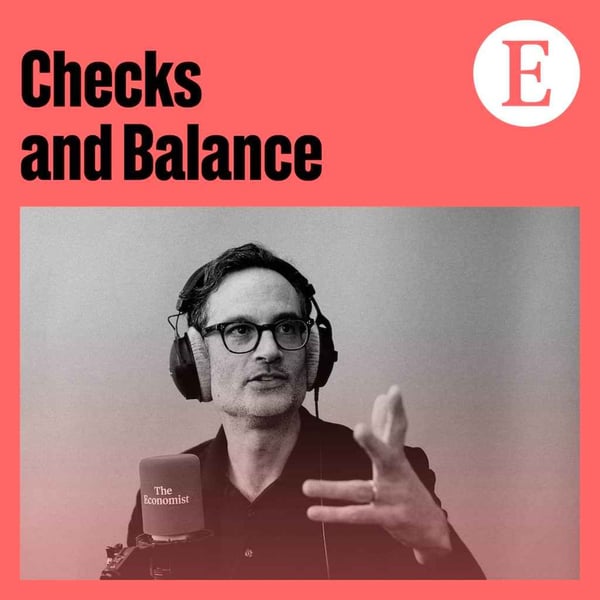Checks and Balance: The great awokening
Checks and Balance from The Economist
The Economist
4.6 • 1.7K Ratings
🗓️ 3 September 2021
⏱️ 44 minutes
🧾️ Download transcript
Summary
A loose set of once-radical ideas about identity, social justice and self-expression has leapt from university campuses to permeate politics and the press, spilling onto the streets and beginning to spread into schools. We investigate how this progressive revolution is changing America. Are business leaders using wokeness for profit? And how should liberals respond to the threat from the illiberal left?
We hear from Robin DiAngelo, best-selling author of “Nice Racism”, learn from the panic over political correctness three decades ago and speak to entrepreneur Vivek Ramaswamy, author of “Woke, Inc”.
John Prideaux hosts with Idrees Kahloon and Jon Fasman.
Subscribers to The Economist can join John Prideaux and guests on September 9th for a live event on the future of American power 20 years after 9/11. Register at economist.com/USpower
For full access to print, digital and audio editions as well as exclusive live events, subscribe to The Economist at economist.com/USpod
Hosted on Acast. See acast.com/privacy for more information.
Transcript
Click on a timestamp to play from that location
| 0:00.0 | Imagine you, you in a nice comfy seat with your hands behind your head, |
| 0:07.6 | taking in the views, instead of taking on the road, maybe even taking a nap. |
| 0:13.6 | That's the bliss of getting where you need to go without worrying about driving. |
| 0:19.9 | A single word sums it up. Latin X strives to be a gender-neutral adjective for a racial identity. |
| 0:41.3 | The X replaces the O or A that would, in the original Spanish, make it grammatically masculine |
| 0:46.8 | or feminine. Only 4% of American Hispanics say they use it, yet in 2018, the New York Times launched |
| 0:53.7 | a column dedicated to Latin X communities. The word is found in think tank reports and, |
| 0:59.8 | since Joe Biden became president, it started creeping into White House press releases and at least |
| 1:04.8 | one of his own speeches. A term once championed by esoteric academics has gone mainstream, |
| 1:10.8 | and it's not the only example of the advance of left-wing identity politics into mainstream |
| 1:15.3 | institutions, companies and academia. How did a set of previously radical ideas about identity |
| 1:21.6 | and social justice leap from campus to large parts of American life? This is checks and balance. |
| 1:32.5 | I'm John Prado, the economist's US editor. Each week we take one big theme shaping American |
| 1:37.5 | politics and explore it in depth. Today, how is workness changing America? |
| 1:58.0 | American liberalism with its notions of individual over group identity, |
| 2:02.6 | universal rights of trust in democracy and above all a vigorous open debate is under threat. |
| 2:09.7 | The most obvious danger is from the Trumpian right with its denigration of the rule of law. |
| 2:15.2 | The attack from the progressive left is harder to grasp, but it's a potent one. |
| 2:20.3 | A new style of politics has emerged from America's universities, and this progressive |
| 2:24.7 | revolution is changing the way that many Americans view the world. In this episode, we'll hear from |
| 2:30.2 | a best-selling author on unconscious racism, tried to learn some lessons from the panic of a political |
| 2:35.4 | correctness three decades ago, and speak to an entrepreneur who believes corporate workness in |
... |
Please login to see the full transcript.
Disclaimer: The podcast and artwork embedded on this page are from The Economist, and are the property of its owner and not affiliated with or endorsed by Tapesearch.
Generated transcripts are the property of The Economist and are distributed freely under the Fair Use doctrine. Transcripts generated by Tapesearch are not guaranteed to be accurate.
Copyright © Tapesearch 2025.

